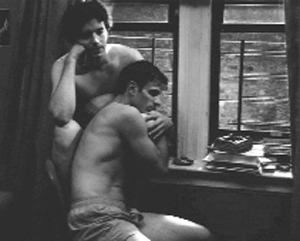In 9/11’s shadow, a gay man struggles to live with himself
How much time do we allow art before we permit it to represent catastrophe? More to the point perhaps, how much time do we allow ourselves before we permit ourselves to feel it? Artists and New Yorkers have been struggling with these questions in contemporary cinema as of late to mixed effect.
Spike Lee, a director whose moxie is almost unquestionable, made an affecting and daring portrayal of New York in 2002 with “25th Hour.” Steven Spielberg in contrast missed the delicacy of the situation later on in his “War of The Worlds.” However, both films were only indirect approaches to the topic of New York after September 11. But why?
Surely terrorism and New York City were very popular in action films before 9/11, but when both subjects are on the tip of everyone’s tongue, Hollywood and the filmmaking community seem to have kept a solid distance between themselves and the topic at hand. This is not just purely a Hollywood phenomenon though, but an American one.
Americans have been holding an almost five-years-and-counting vigil for September 11, even so far as discouraging direct depiction of the plane crashes and the lives of the people around the site of the World Trade Center. Now however, that vigil and the sanctity attached to those particular memories seem to be coming to a close.
Brian Sloan’s new film “WTC View,” premiering in September on LOGO, rests thematically and physically at the edge of the World Trade Center site as the main character Eric (Michael Urie) isolates himself in an apartment with an outlook on debris. Eric is a young gay man who, throughout the film, is ostensibly in search of a roommate, though it is clear to the viewer his search is impossible given that he is hardly able to live with himself. The plot of the film finds him going through a series of stereotypical roommates—played by mediocre actors—as he attempts to find someone to split his now crumbling and toxic fume-filled apartment after his breakup with a long-time boyfriend.
Obligatory straight-couple subplots follow and fill the film along with Jeremy’s search but none of the actual plot elements is as interesting as the film’s basic question—After this, how can I live with myself?
For the entirety of the film, we never see Jeremy leave the apartment he can barely pay for, in a neighborhood filled with sirens and the stench of death seen and smelled respectively through an open window, but people come in and out of the apartment to visit him. We’re left to posit that Jeremy’s punishment is self-inflicted, his confinement voluntary.
In this way, “WTC View” begs the question facing both Jeremy and America as a whole—why are we punishing ourselves with September 11? If “the war was over as soon as the second plane hit” as one of the characters in the film declares, then why do we keep reliving it? There are many answers to these questions and “WTC View” is too smart to offer any that would not be satisfactory.
Oliver Stone’s “World Trade Center” gives Hollywood and the rest of America their chance to finally traipse onto yet another sacrosanct subject. But “WTC View” offers a meditation on guilt and suffering and its internal nature in this turbulent world. Its resolution is simple—breathe.
gaycitynews.com



































